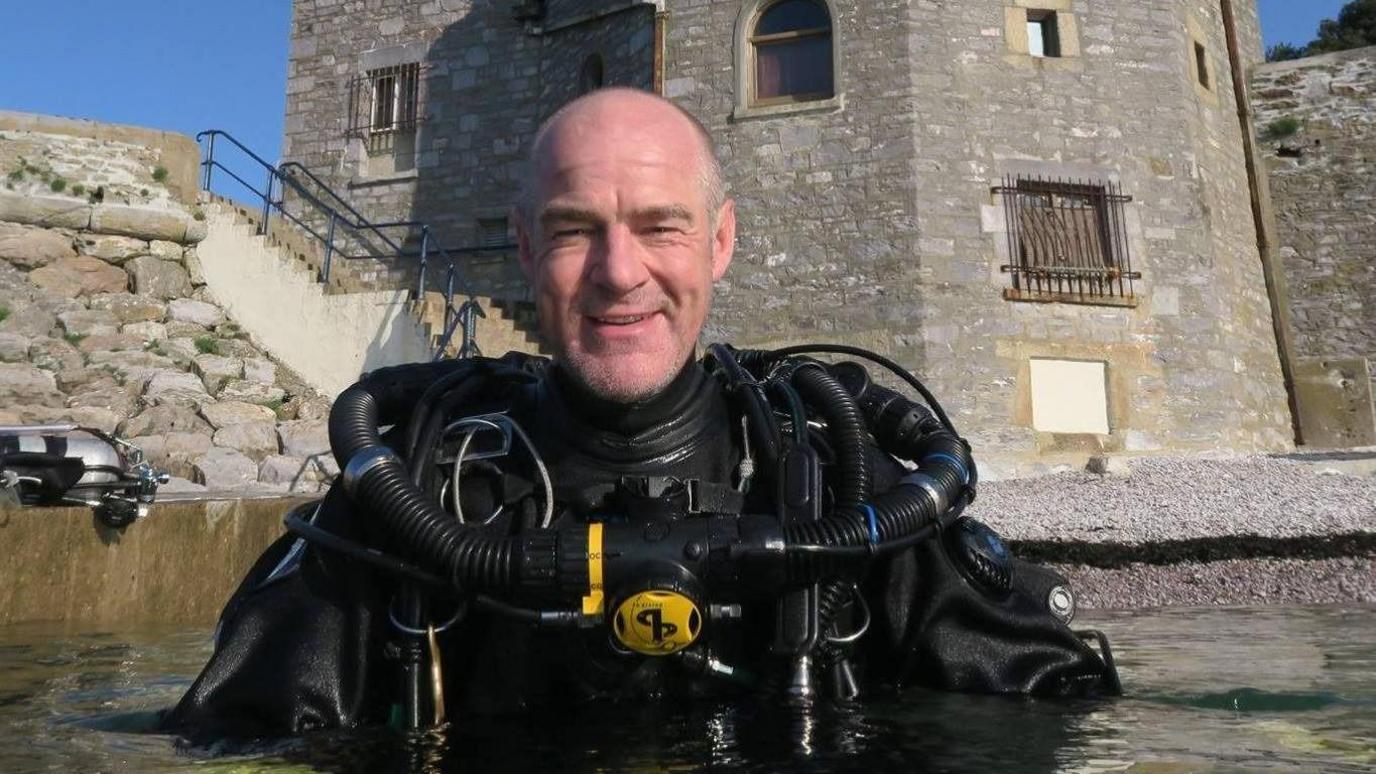Shipwreck mystery solved after nearly 140 years
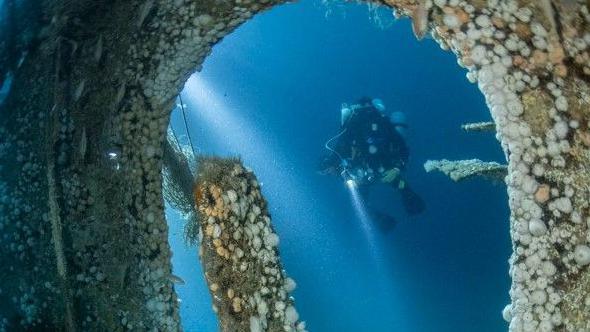
Dr Harry Bennett said the SS Nantes sank "with the loss of a substantial number of the crew"
- Published
The mystery of a maritime disaster has been solved after experts found a vessel that sank almost 140 years ago.
Diver and explorer Dom Robinson identified the SS Nantes, off Plymouth, after examining the wreck site and finding crockery.
Dr Harry Bennett, an expert in maritime history, said the dive team had found "the underwater archaeological equivalent of a needle in a haystack".
Mr Robinson said solving the mystery ensured those who died were not forgotten.
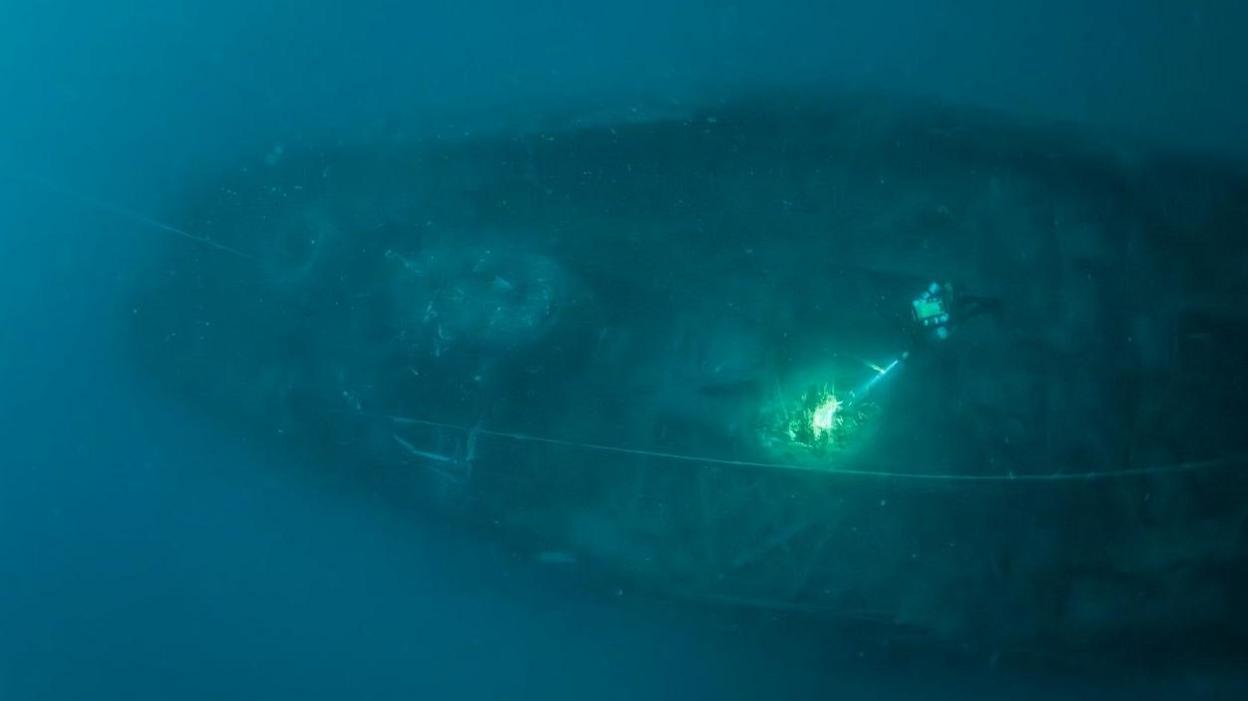
The shipwreck was explored off the Devon coast and crockery found
In November 1888, the SS Nantes, which was operated by the Cunard Steamship Company, collided with a German sailing vessel, the Theodor Ruger, said Dr Bennett.
The crew spent "several hours" trying to save their ship, the honorary associate professor in history at the University of Plymouth said.
"They used mattresses to plug the gap which had opened up in the hull of the SS Nantes," he said.
"[The ship sank] with the loss of a substantial number of the crew. There were some 23-odd fatalities. There were three survivors."
Bodies from the wreckage washed ashore at Talland Bay and Looe, in Cornwall, and "locals were confronted by this picture of horror, pieces of ship together with bodies," he said.
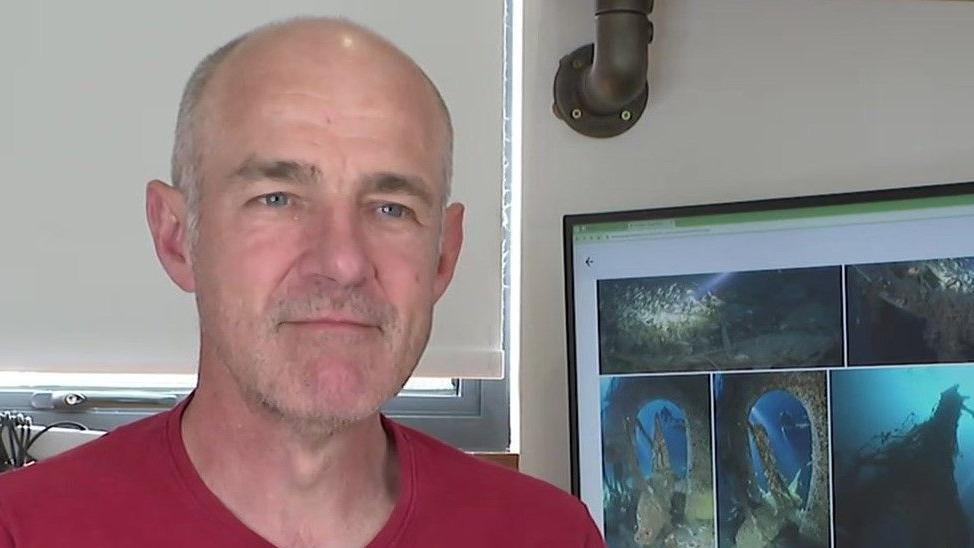
Dom Robinson has been diving for about 35 years
Afterwards the "wreck was essentially lost, obviously you're dealing in a period with no satellite navigation," said Dr Bennett.
He added while the crew tried to save the ship it "drifted for several hours, before it finally made its way to the bottom, sadly, with many of its crewmen on board".
He said the wreck was lost until a local dive team identified it in 2024.
Mr Robinson, who has been diving for about 35 years, said he heard about the unidentified wreck from the UK Hydrographic Office.
'Bingo, we've found it'
He said the wreck "was clearly an early steamship when we got down there" but "at the end of my dive I found a broken piece of plate... I decided to bring it up to the surface [and] we found that had the Cunard Steamship crest on it".
"It was then bingo, we've found it," he said.
Dr Bennett said it was identified by the build and dimensions of the wreck, the technology on board, the cargo and "lastly and most telling, they find a plate on the back of which is stamped Cunard - this is a Cunard ship".
"[It was] very methodical, very, very dedicated detective work," he said.
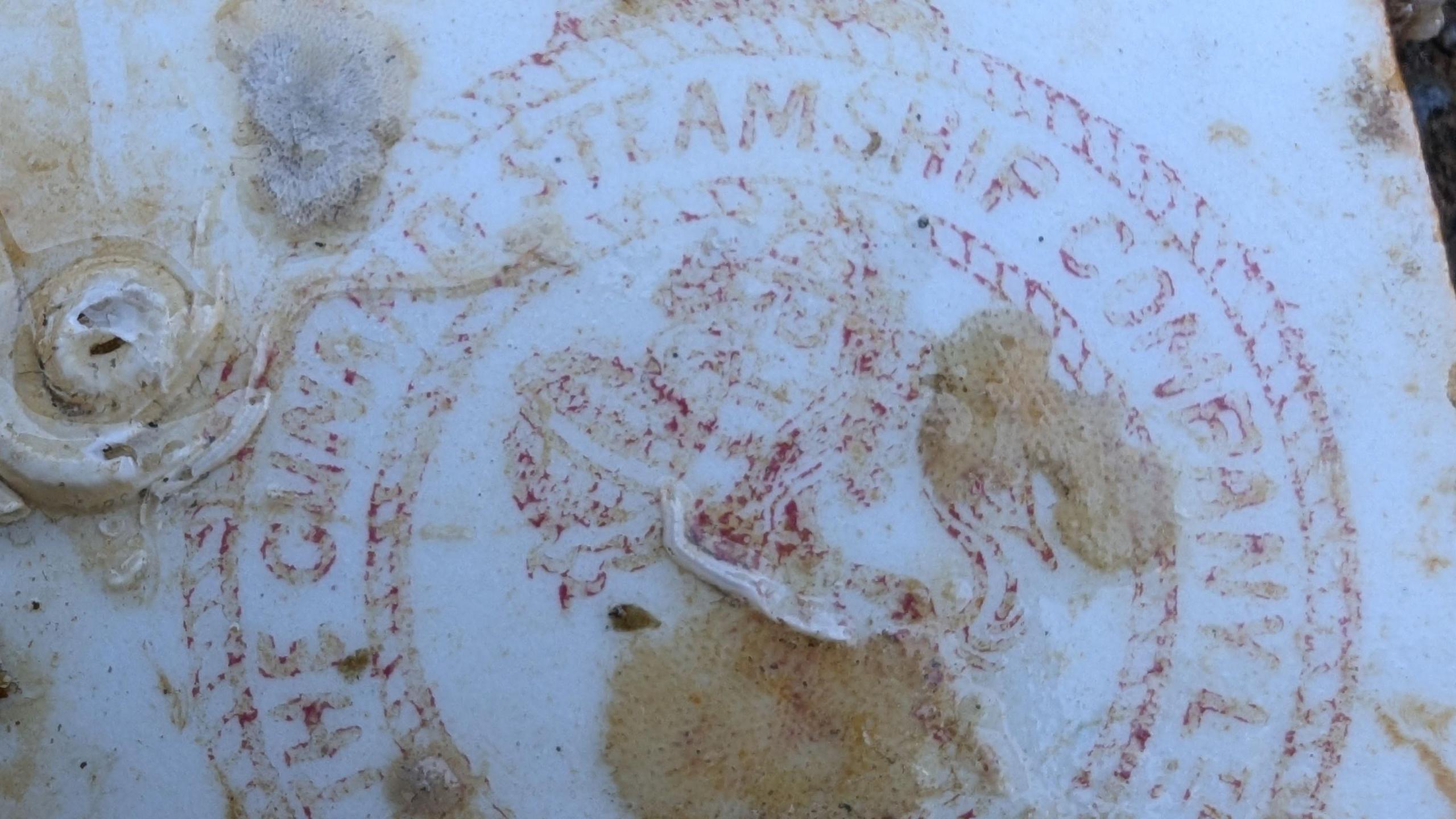
On the back of a plate is the stamp of the Cunard Steamship Company
Mr Robinson said: "This was an awful tragedy. One of the things I like to think is by solving mysteries and telling those stories I'm ensuring that those people aren't forgotten."
Since the initial find, Mr Robinson said he had dived the wreck again and found a second piece of Cunard crockery, providing "even more confirmation".
"There are very few mysteries left to explore in this world," he said.
"As a normal human being like me, going in exploring shipwrecks and identifying shipwrecks, that is just something different to my normal life, and it's a fantastic feeling."
Dr Bennett said "all the pieces fit and I think the local dive team are to be congratulated on a splendid piece of detective work which reveals this maritime disaster".
He said he had looked at the footage and methodology and had confirmed they were right "beyond any reasonable shadow of a doubt, this is the SS Nantes".
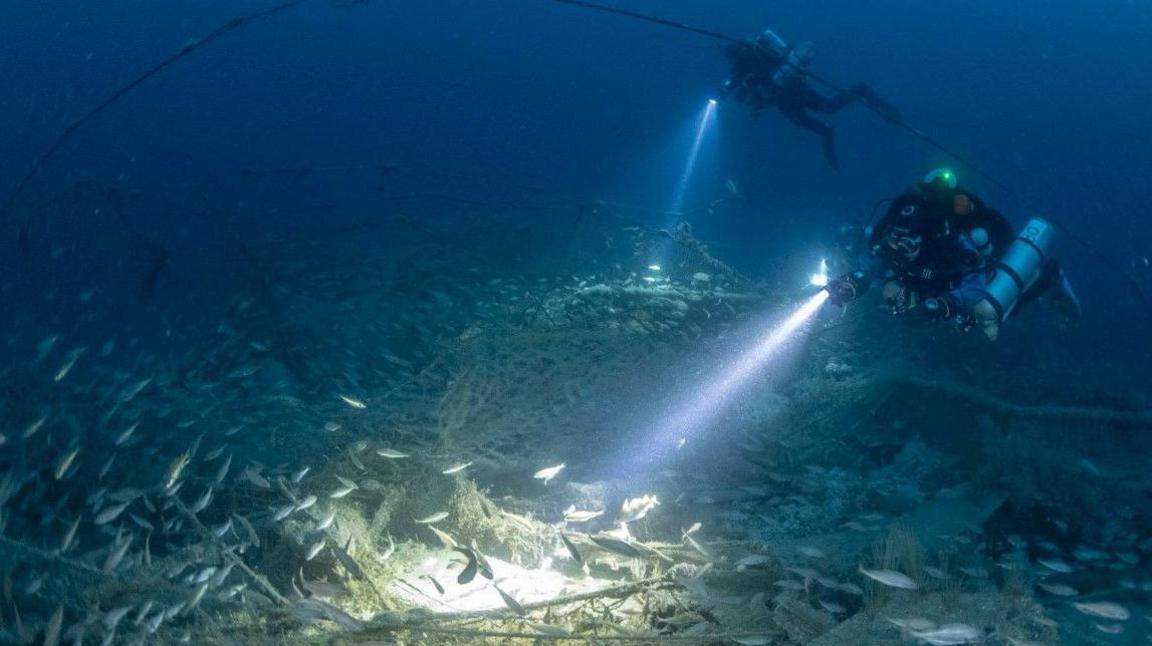
Dom Robinson said it was a fantastic feeling to identify the wreck
Follow BBC Devon on X, external, Facebook, external and Instagram, external. Send your story ideas to spotlight@bbc.co.uk, external. Follow BBC Cornwall on X, external, Facebook, external and Instagram, external
Related topics
- Published22 July 2023
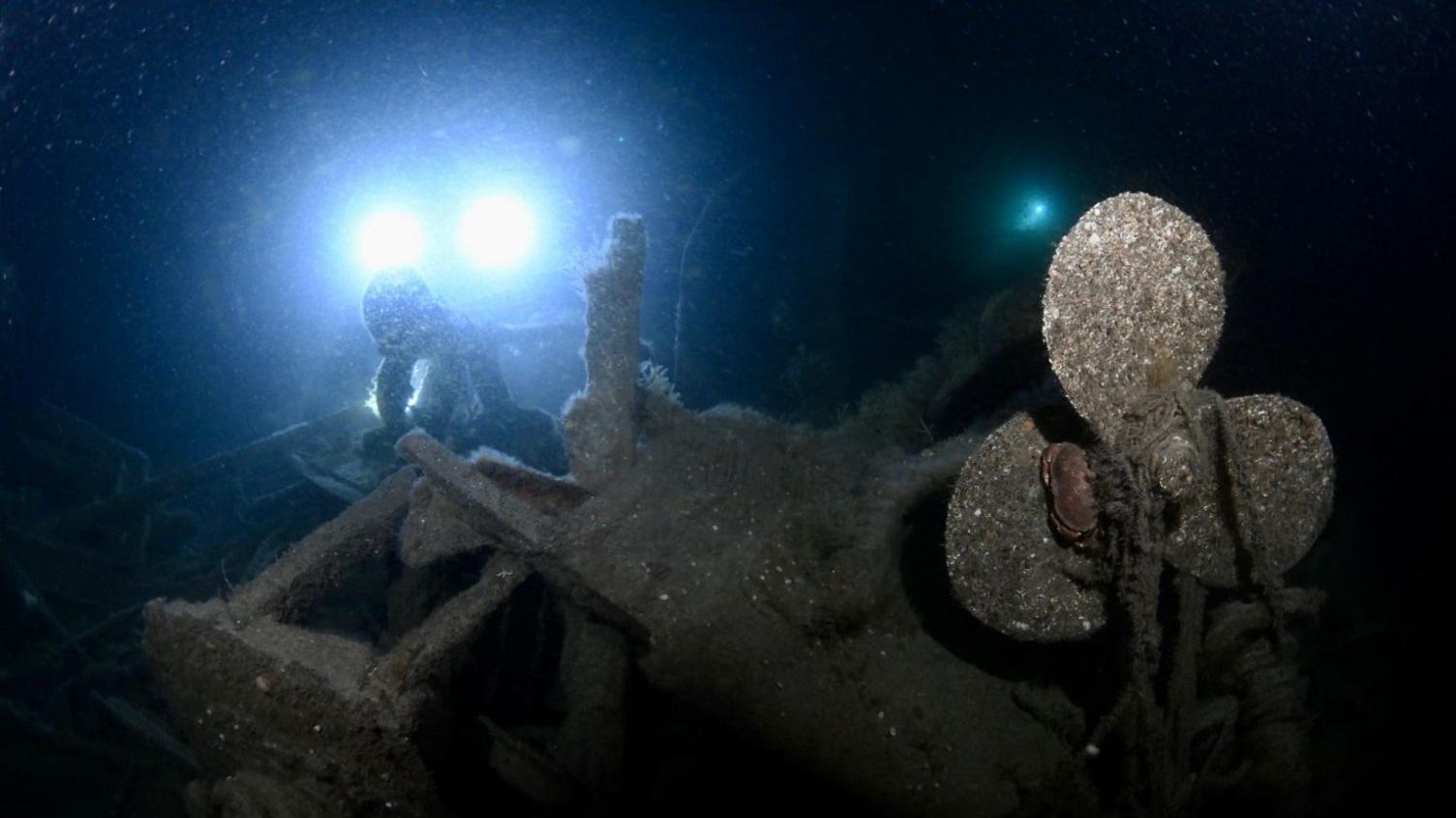
- Published23 April
